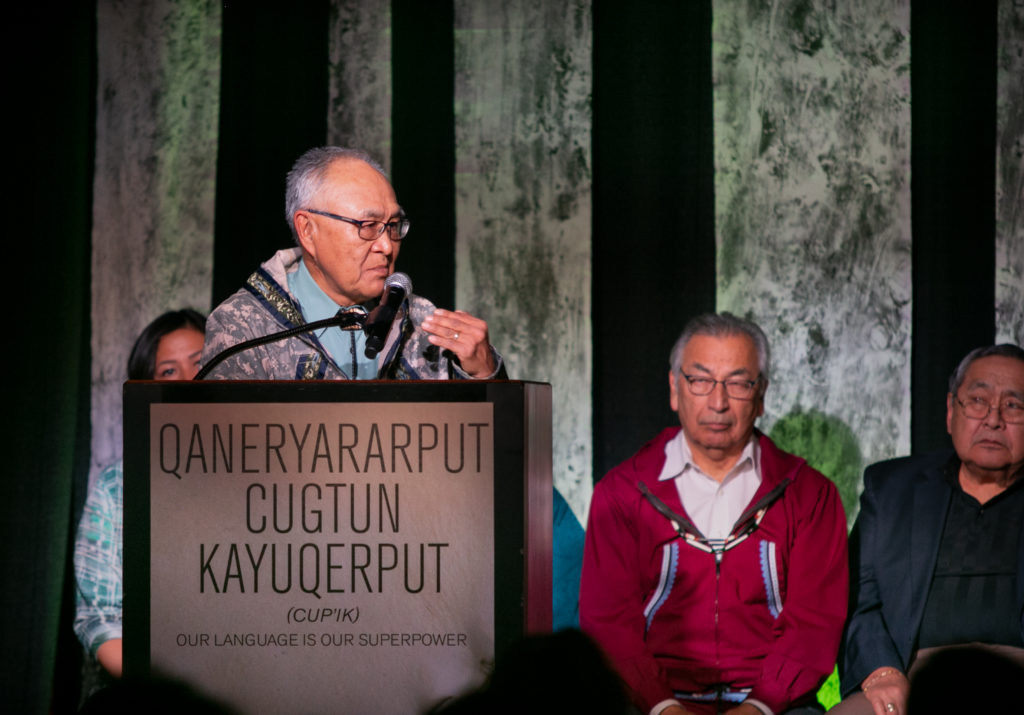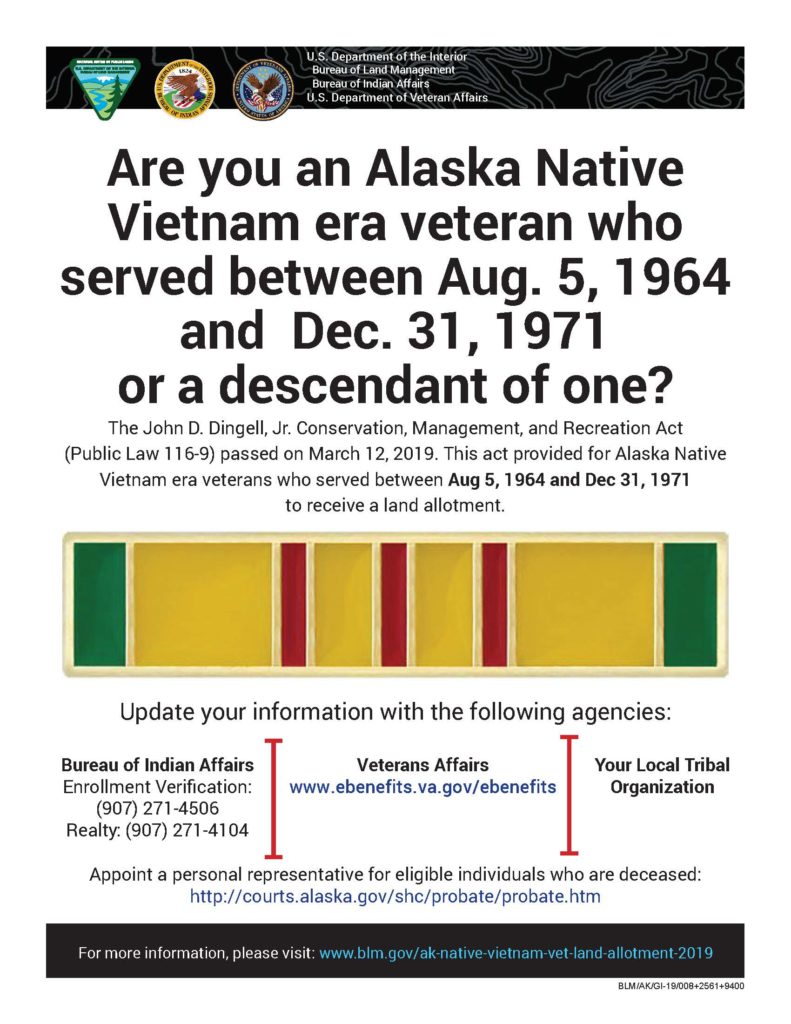Welcome to the electronic version of Storyknife. Sign up to receive the Storyknife eNewsletter via email.
Alaska Native Vietnam Vets Gain Opportunity for New Lands
BIA Needs Current Contact Info for Eligible Vets
Storyknife, Sept./Oct. 2019 edition

When Gabriel Evan of Marshall returned home after the Vietnam War, everything seemed to have changed in Southwest Alaska.
He was urged to enroll in something he didn’t know existed—a Native corporation.
The Alaska Native Claims Settlement Act (ANCSA) had passed and at the same time, the opportunity for him to apply for a Native allotment had disappeared.
Before he was drafted, Gabriel didn’t even really know about allotments. He just knew his dad had a trapping cabin out in the country where they enjoyed spending time. In those days, they didn’t have to worry much about who owned what land.
As Gabriel was dismayed to learn, it was too late for him to apply for an allotment. ANCSA repealed the 1906 law that authorized allotments.
That experience and others like it make Gabriel very sensitive to windows of opportunity and the importance of spreading the word about crucial programs to rural Alaskans.
He is on high alert because eligible Alaska Native Vietnam War veterans or their heirs will be granted a new chance to apply for allotments the veterans didn’t have the chance to apply for because of their active duty status at the time.
Here’s how it will work: Any Alaska Native Vietnam veteran who served during the period of August 5, 1964 through December 31, 1971 and has not yet received a Native allotment under previous legislation, will be able to apply for an allotment of up to 160 acres of federal land. The veteran’s heirs are also eligible.
There is a strong likelihood that many Calista Shareholders and Descendants will be determined eligible. Here’s what’s important for them to do right now.
If you think you may be eligible, make sure to update your contact information with the U.S. Bureau of Indian Affairs (by calling 907-271-4506) at the Veterans Administration (ebenefits.va.gov/ebenefits), and by contacting your Tribe. Heirs of eligible individuals who are deceased should provide the name of the appointed personal representative for the deceased person.
“Calista Corporation thanks the persistent efforts of Nelson Angapak, the Alaska Federation of Natives, and other organizations and veterans. Dozens of meetings and trips over the last 40 years resulted in this recognition to Native American Vietnam Veterans.” – Andrew Guy, Calista Corp. President/CEO
Otherwise, eligible persons could miss the opportunity to apply for an allotment. This application period could begin in late 2020, at the earliest, and end in 2025.
The length of time for the program to get up and running may be frustrating to some veterans. As Gabriel explains, “A lot of us are in our 70s and not far from the grave site.”
Veterans may also be wondering about other details of the new law, including the application process and the location of parcels of land that will be available. Many of those details aren’t available yet.
Shareholders are encouraged to review the U.S. Bureau of Land Management website (blm.gov/alaska) for Frequently Asked Questions about the Alaska Native Vietnam Veterans Land Allotment Act of 2019. The website includes a “quick link” to a flyer that can be shared on social media, emailed and posted in communities.
Please join us in getting the word out!
